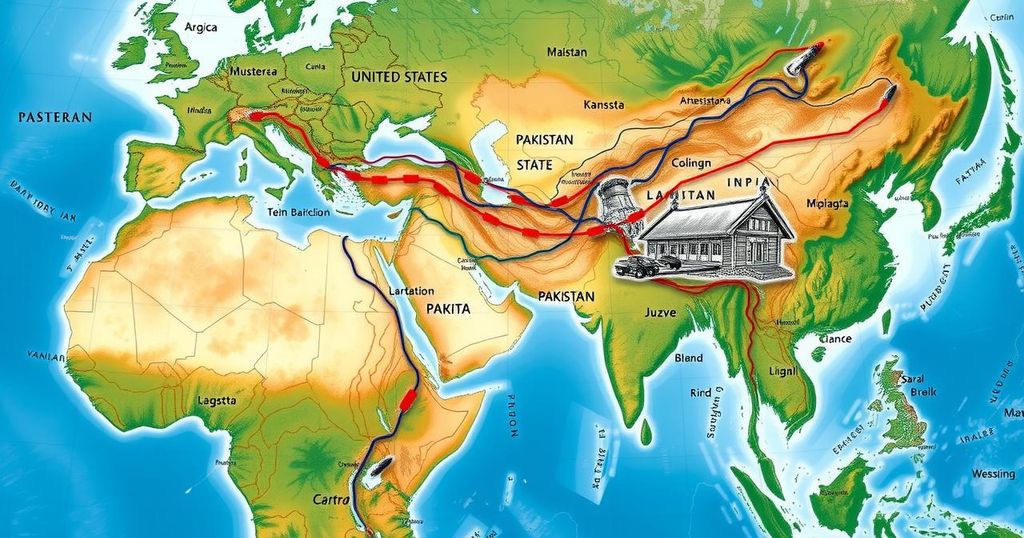The Deadly Intersection of Climate Change, Migration, and Conflict in Southern Africa
Cyclone Chido, a category 4 storm, wreaked havoc in Mayotte and Mozambique, affecting 70% of Mayotte’s population and destroying numerous homes. The storm’s intensity is linked to climate change, which is exacerbated by socio-economic challenges, ongoing conflicts, and migration. Resilience strategies must account for these intersecting factors to effectively mitigate future storm impacts.
Cyclone Chido, classified as an intense tropical cyclone akin to a category 4 hurricane, struck Mayotte and subsequently Mozambique in December. It generated wind gusts nearing 155 mph and is part of an alarming trend of increasing cyclone intensity in the Indian Ocean, linked to rising sea temperatures from climate change. The aftermath has severely impacted 70% of Mayotte’s residents, while in Mozambique thousands of homes were destroyed, highlighting the compounded risk of conflict and migration in exacerbating these disasters. The precarious living conditions of migrants and unresolved conflicts contribute to increased vulnerability, as existing infrastructure struggles to accommodate the urgent needs post-disaster. Additionally, scientists are observing that climate change not only fuels stronger storms but also predisposes regions to a higher likelihood of severe cyclones, underscoring the urgent need for an integrated approach to disaster preparedness that includes socio-political factors.
The recent rise in frequency and intensity of tropical cyclones in the Indian Ocean is becoming a significant concern for the southern African region. Cyclone Chido’s effects highlight the interplay of climatic factors and human vulnerabilities due to socio-economic issues, migration, and conflict. Researchers are now investigating how to build resilience in communities affected by both climatic disruptions and ongoing socio-political challenges. Understanding the implications of climate change on storm patterns is essential for future disaster management and policy-making.
In summary, Cyclone Chido exemplifies the growing threat posed by intense tropical storms, exacerbated by climate change, migration, and ongoing conflicts. The overlap of social vulnerabilities and environmental hazards necessitates a comprehensive response strategy that addresses both immediate relief efforts and long-term resilience building. As warmer ocean temperatures enhance cyclone intensity, communities must be prepared not just for the storms but also for the socio-economic challenges that accompany them.
Original Source: theconversation.com




Post Comment